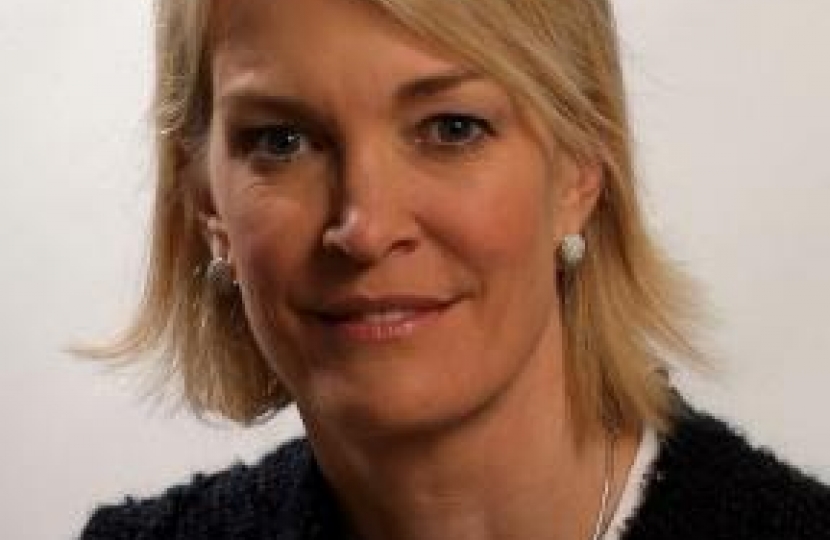
Margot James (Stourbridge) (Con): It is an honour to follow the hon. Member for Croydon North (Steve Reed). I feel a certain distress about how the debate has been managed over the past six months and the pressure that has been put on so many of my colleagues by pressure groups and Churches who should have known better than to deploy such tactics. I feel that I have been living with a false sense of security after the legislative changes of the past decade. I am indebted to the Prime Minister not only for the Bill, but for the changes he has brought about within my party, which have led to my own election and that of many others and changed the face of the parliamentary party. As a result of the debate over the past six months, we may have gone two steps forward, but I fear we have also gone one step back. The modernisation of the Conservative party is not yet complete.
Mrs Madeleine Moon (Bridgend) (Lab): Has the hon. Lady, like me, been particularly angered and frustrated by the tactics of the campaign director of Coalition for Marriage, who has sent out e-mails urging people to write to their MPs saying:
“You will be remembered if you vote for this Bill. You will be held to account for it. We will tell your friends and family and we will not vote for you.”?
This is a free vote. Members should be voting with their conscience, as a free vote requires, not on the basis of threats to electoral prospects.
Margot James: The hon. Lady makes the point far better than I could have done. The Coalition for Marriage and some Churches have deliberately and consistently misinterpreted the Government’s intentions by pretending that we were forcing Churches to marry same-sex couples. That was never the intention of the Government, and I and other colleagues would never have supported the Bill had it been so.
Belatedly, only this weekend, the Church of England has finally admitted that it is not realistic or likely that Churches will be forced to conduct same-sex weddings. It is so easy to say that now, when practically every person I meet who does not follow political deliberations in great detail has said to me about the Bill, “Oh, it’s about weddings in churches for gay people, isn’t it?” That is the misapprehension that many of my constituents who are opposed to the Bill have laboured under, including members of my own constituency association. I would like to put on record my appreciation of those individuals who have treated me with courtesy and respect such that I can, in conscience, support the Bill this evening without fear or favour. Many of them, however, believe that we are legislating for gay weddings in church. We are not. I am satisfied by the advice of the Attorney-General that that is an infinitesimal possibility. We have heard about how nobody can legislate against a challenge in the courts, but case law in the European Court of Human Rights makes it infinitesimally unlikely that any such challenge would succeed.
Emma Reynolds (Wolverhampton North East) (Lab): The hon. Lady is making a powerful speech. Does she agree that many European countries that are members of the Council of Europe have introduced same-sex
5 Feb 2013 : Column 164
marriage while at the same time protecting religious freedom, and that it is not beyond the wit of man or woman to do the same in our country?
Margot James: The hon. Lady is absolutely right. In fact, there was a case from Austria in 2010, Schalk and Kopf, in which the European Court of Human Rights ruled that there was no obligation on any country, on any secular Government, to guarantee the rights of gay people to marry each other.
It has been argued that equality is not all that matters—that we are different and we should celebrate differences. I agree: we should celebrate cultural and other differences. However, having been different for most of my life, Mr Deputy Speaker, I can assure you that being treated equally is very welcome indeed. We still have some way to go, not just for gay people but in other areas too. My party should never flinch from the requirement to continue this progression; otherwise we may end up like the Republican party, which lost an election last year that it could have won were it not for its socially conservative agenda.
One last point that has not been raised is that gay people have always been allowed to marry—as long as they choose someone of the opposite sex. This has been the case in politics and in Hollywood for reasons that are well known. Many gay people today appreciate civil partnerships, but want more—they want the status of marriage. I am thinking particularly of younger gay people, who did not have to grow up in the environment that some of us had to grow up in. I support their right to declare their love in a state of marriage. I can assure hon. Members that this will not undermine tradition.
